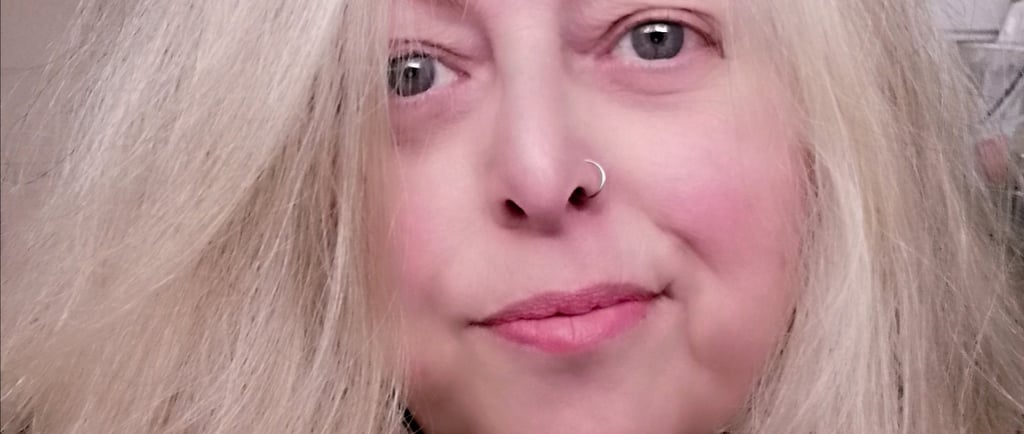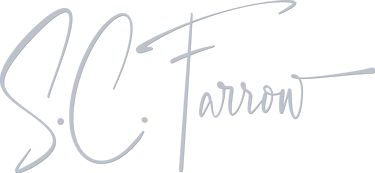
Post-Novel Writing Blues
When the sun goes down on my storybook world, I’m always left with a feeling of emptiness. That’s how I feel as a reader. It’s even worse as a writer.
RHAPSODIES
S.C. Farrow
8/29/20204 min read


I don’t know about you, but I always get a little sad when I finish a book that I have truly enjoyed reading. When the sun goes down on that storybook world, I’m always left with a feeling of emptiness. That’s how I feel as a reader. It’s even worse as a writer.
For those of you who don’t know, I recently finished writing my first novel. It’s a project that I’ve been working on for five years in moments snatched between work, study, and family commitments. The day after I typed the last word on the page, I crashed. My emotions plummeted into a dark place where I entertained some seriously negative thoughts about the quality of the words I’d spent five years crafting.
THAT PROFOUND FEELING OF EMPTINESS
The feeling was reminiscent of the time when shooting wrapped on Killervision, the microbudget movie I’d co-written and co-produced in 2011. At the time, we, the cast and crew, existed inside such an insulated bubble, we had no idea a tsunami had devastated Japan and killed almost 16,000 people. We were shocked when we heard the news several days later.
At the end of the month-long shoot, I experienced a profound sense of loss and emptiness that was unlike anything I’d ever felt before. In the glow of the artificial world we were creating, many hyper-intense and deeply intimate moments were shared creating extraordinary bonds between members of the cast and crew. When the shoot was over, I felt an inexplicable sense of emptiness. The loss of their presence in my daily life was disconcerting. But such is the nature of a film shoot… So, what about that moment at the end of a novel? Is it possible to the feel the loss of fictional characters as deeply and profoundly? Yes. Absolutely, yes.
A LITERAL LOVE AFFAIR
Over the last five years, a day hasn’t passed where I’ve thought about my story—the plot, a scene, a line of dialogue, or the characters and how they felt and behaved. I gave life into characters that were really nothing more than words on the page. In the process of doing this, I had to enter their minds. In other words, in order to create them, I had to become them. As human beings, we spend a whole lot of our time attempting to understand ourselves. The way we interact with others in social groups largely depends on our ability to judge others’ character. Character is what we observe in other people in order to assess the way we feel about them—like them, dislike them, understand them, trust them (or not). Character helps us to understand whether to give or withhold that trust. Character is also what we know and understand about ourselves.
As fiction is a reflection of what we know and understand about ourselves and others, it’s not hard to see that we read fiction in order to achieve a better understanding of ourselves and the way we fit into our societies. As my characters grew and developed, I came to know them intimately. I built the world that they inhabited and had absolute power over whether or not they succeeded or failed, loved or lost, lived or died. They became as real to me as anyone who is in my life. Perhaps even more so because real people keep secrets. Real people don’t tell whole truths. Real people live internal lives of which I might only ever catch a glimpse. But the characters I created couldn’t hide a thing from me and so I came to know them far more intimately than any real person in my life. When I typed the last few words, the five-year investment of time and emotion was over. Just over. There was nothing more to write. The characters that had been in my head day in and day out for the last five years were done.
"Finishing a book is just like you took a child out in the back yard and shot it." ~ Truman Capote
THE AFTERMATH
The following week, I woke up every day with the same horrendous feeling of being a fraud. Even though the book was done, my inner critic went into overdrive telling me that I was kidding myself believing that I was ever going to be good enough to be a ‘real writer’. I spent two days stuffing my face with junk food and binge-watching Netflix while contemplating returning to nine-to-five type employment. But I’m not cut out for nine-to-five type employment, so I had to deal with the post-creation depression.
Now this is, of course, easier said than done. I wrote my novel in first person perspective, and it’s generally accepted that the letting go of first-person characters is a little more difficult than letting go of third-person characters. The necessity of becoming a first-person character means the narrative has become more personal to you. This is not to say that writing in third person is easy. It most definitely is not. However, writing in third person is, by nature, more observational than first person and as such can feel a little like we’re engaging in a round of juicy gossip. Having said all this, the most important thing to remember is that if you love and miss your characters, you’ve most likely done a pretty good job of developing them.
RIDING THE ROLLERCOASTER
Post-creation depression can leave writers feeling tired and burnt out. Things that normally excite us, don’t. The worst thing we can do in this situation, is ignore our feelings. The first step in moving past them is acknowledging they are real and that they exist. Okay, so they’re real. What next? Some writers launch themselves into a campaign of reading. They dive into every single book they haven’t had time to read while they were working on their own long-form text. Others revisit neglected hobbies. Some travel. Some immerse themselves in family. Some get stuck into chores that were long postponed. Some start planning their next project. Others explore totally new things.
The creative process is like riding a roller coaster - for every high there is an equal and opposite low. The most important thing to know is that there is no absolute right way or wrong way of dealing with post-creation slump. As long as it’s not destructive, all you can do is figure out what works best for you.
Creative writing
Narrative writing
Fiction writing

© 2026. All rights reserved
In the spirit of reconciliation, we acknowledge the Traditional Custodians of Country throughout Australia and the Torres Straight Islands and their connections to land, sea, and community. We pay our respects to elders past and present and extend that respect to all First Nations and Torres Strait Islander peoples today.
ABN: 19 569 432 238





